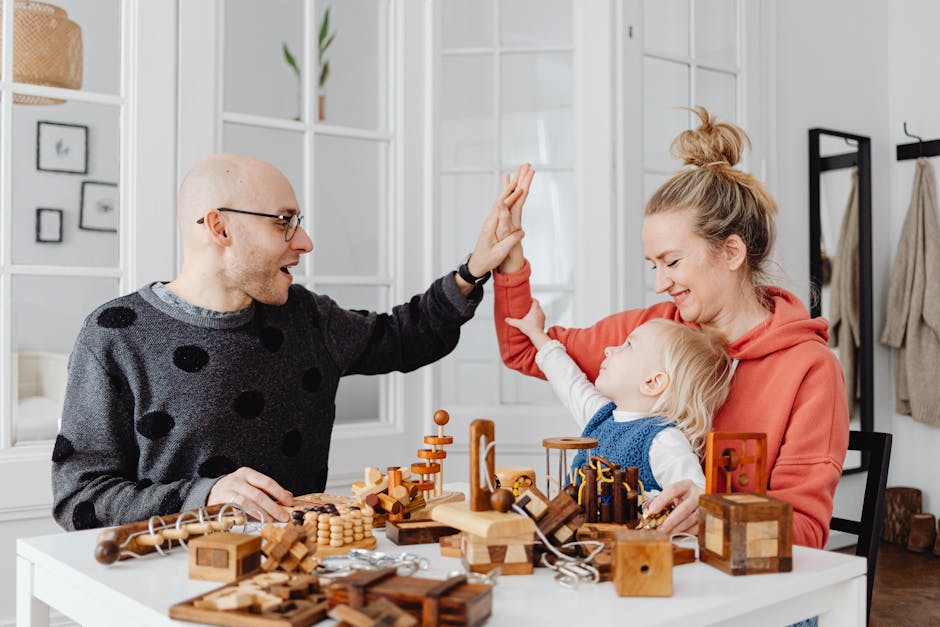Benefits of Social Skills Games
Social skills games offer a fun and interactive way for special needs children to develop crucial social skills. These games provide a safe environment where kids can practice communication, empathy, and teamwork skills in a supportive setting.
By choosing social skills games, parents can actively engage their children in learning while having fun. The interactive nature of these games keeps children interested and motivated to participate, promoting a positive learning experience.
One key benefit of social skills games is that they help children improve their social interactions in a controlled and enjoyable setting. Through play, kids can learn essential skills such as turn-taking, active listening, and cooperation, which are vital for building strong relationships.
Parents should opt for social skills games as they are designed to be inclusive and accessible to children with a range of abilities. These games can be tailored to meet the specific needs of special children, ensuring that they can fully participate and benefit from the learning experience.
Social skills games promote a sense of belonging and acceptance among children with special needs. As they engage in play with their peers, children can develop a sense of community and shared experiences, fostering a supportive and inclusive social environment.
Through social skills games, children can enhance their emotional intelligence and regulation. These games provide a platform for kids to identify and manage their emotions effectively, leading to improved self-awareness and empathy towards others.
Enhancing Communication Skills
Social skills games play a crucial role in enhancing the communication skills of special needs children. By engaging in structured activities and group play, kids can practice verbal and non-verbal communication in a relaxed and enjoyable setting.
Choosing social skills games for your child can help them develop expressive and receptive communication skills. From practicing conversation starters to interpreting social cues, these games offer a practical way for children to improve their communication abilities.
Parents should consider social skills games as a tool for promoting speech and language development in special needs children. These games encourage verbal interaction, storytelling, and active listening, fostering a supportive environment for language growth.
Through participation in social skills games, children can gain confidence in expressing their thoughts and feelings. The structured nature of these games provides a safe space for children to communicate openly, building their self-assurance and communication skills.
Social skills games offer a creative outlet for children to practice different forms of communication. Whether through role-playing, storytelling, or collaborative tasks, these games enable kids to explore diverse communication styles in a fun and engaging way.
By incorporating social skills games into their child’s routine, parents can help them overcome communication challenges and build strong interpersonal connections. These games provide a supportive platform for children to enhance their communication skills and thrive in social interactions.
Building Empathy and Understanding
Social skills games are instrumental in building empathy and understanding in special needs children. Through guided activities and social scenarios, kids can learn to recognize and empathize with the feelings and perspectives of others.
Parents opting for social skills games prioritize the development of emotional intelligence in their children. These games teach kids to understand and respond to the emotions of their peers, fostering empathy, kindness, and respect in their social interactions.
Choosing social skills games cultivates a sense of compassion and empathy towards individuals with diverse backgrounds and experiences. Children learn to appreciate differences, practice tolerance, and develop a sense of inclusivity through engaging in these games.
Social skills games create opportunities for children to step into the shoes of others and see the world from different perspectives. By encouraging role-playing and problem-solving in social contexts, these games foster empathy, cooperation, and a deeper understanding of social dynamics.
Through playing social skills games, children can develop a greater awareness of social cues, emotions, and non-verbal communication. This heightened sensitivity leads to improved understanding and empathy towards peers, creating a more empathetic and connected social environment.
Parents can support their child’s emotional development by incorporating social skills games that emphasize empathy and understanding. These games provide a platform for children to practice perspective-taking, active listening, and kindness, nurturing their ability to connect with others on a deeper level.
Promoting Social Interaction
Social skills games play a vital role in promoting social interaction among special needs children. These games offer a structured and enjoyable way for kids to engage with peers, practice social norms, and develop friendships.
By choosing social skills games, parents encourage their children to participate in group activities that build social connections. From collaborative challenges to group discussions, these games promote teamwork, cooperation, and healthy social engagement.
Parents should consider social skills games as a means to enhance their child’s social confidence and participation. These games provide a supportive environment for kids to interact with others, share experiences, and build relationships based on mutual respect and understanding.
Social skills games offer a platform for children to practice essential social skills such as making eye contact, initiating conversations, and resolving conflicts. Through guided play and structured activities, kids can gain the confidence to navigate social situations effectively.
Playing social skills games allows children to develop critical social competencies that are essential for successful social interactions. From understanding personal boundaries to practicing active listening, these games help kids build the skills needed to thrive in a variety of social settings.
Through social skills games, children can foster a sense of belonging and acceptance within peer groups. By engaging in inclusive play and cooperative tasks, kids can strengthen their social connections, boost their confidence, and experience the joys of positive social interaction.

